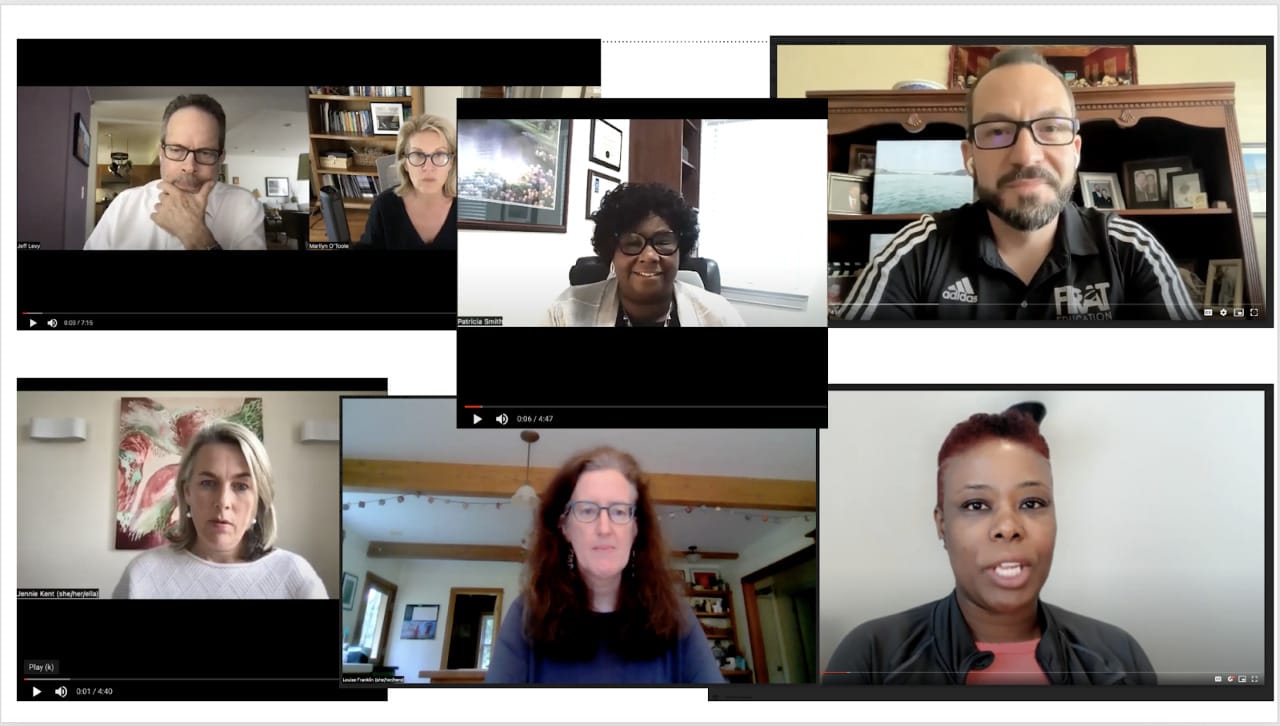By IECA’s Lobbyists/Government Relations Team of Brian Finch and Craig Saperstein, Pillsbury Law and Public Policy; and the IECA Government Relations Committee
With the November 2020 general election nearly concluded, the Biden-Harris transition team is beginning its initial tasks of identifying individuals for key agency positions, and setting the groundwork to implement the new Administration’s major policy initiatives. The Biden Transition Team has begun formal coordination with current agency officials, and now has access to direct government funding for the transition. Given President-elect Joe Biden’s campaign promises and stated policy goals, there may be substantive developments in the higher education space within the first few months of the Biden presidency of which independent educational consultants should be aware.
Top Biden Policy Goals
Whether by executive order or through legislation, President-elect Biden has already indicated that he hopes to address student debt within the first 100 days of his presidency. Although no specifics have been revealed by the Biden team, potential relief may include a specific amount of debt forgiveness for undergraduate loans (rumored to be ranging anywhere from $10,000 to $50,000, with income-based caps), an extension of the COVID-19 forbearance period, and reduced federal interest rates on future federal loans.
Another priority for the Biden Administration will be reauthorizing the Higher Education Act (HEA), which establishes federal student aid programs and governs most federal money going to colleges and universities in the United States. The HEA is designed to be reauthorized and updated every 5 years. However, the most recent update has not occurred since 2008. House Democrats introduced a bill, known as the College Affordability Act, to reauthorize the HEA in the current session of Congress, but action on HEA reauthorization is not likely to occur until the next session of Congress.
Beyond these initial objectives, the Biden team made education reform a key priority throughout the presidential campaign. Specific to higher education, the Biden campaign promised to invest in educational pathways programs in high schools, including investing in school vocational training programs, building partnerships between high schools, community colleges and employers to allow students programs to earn industry credentials while in high school. The Biden team has also promised to allow Pell grants to be used for dual enrollment programs, allowing high school students to take classes at community colleges for college credit.
Stakeholder groups have also been using this transition period to identify specific Trump Administration directives that the incoming Biden Administration should address. This week, the Association of Public and Land-grant Universities (APLU) and the American Council on Education (ACE) both sent their policy priorities and recommendations to the Biden transition team. Their recommendations include reversing Trump Administration limits on H-1B visas that have limited international student enrollment in colleges, ending the Trump executive order limiting diversity and critical race theory trainings, and ending certain “unnecessarily adversarial” investigations by Department of Education into admissions practices. While the Biden team has not responded to these requests, these two influential higher education lobbying organizations and may help shape the initial Biden Administration policy goals.
Department of Education
Recently, the Biden-Harris transition team named its Agency Review Team for the Department of Education. The Review Team is led by Linda Darling-Hammond of the Learning Policy Institute, who previously served in the same role in 2008 for the Obama-Biden transition. Other Review Team members include the head of the Institute for College Access and Success, the postsecondary education leader at the Center for American Progress, a senior administrator at Howard University, the policy director for the Alliance for Excellent Education and numerous stakeholders from the primary and secondary education worlds. These volunteers are responsible for reviewing and understanding the operations of the Department of Education, coordinating the transition of power, and preparing President-elect Biden, Vice President-elect Harris and incoming Administration leaders to implement key policy priorities.
As part of the COVID-19 relief measures, federal student loan payments had been suspended through the end of 2020. The Biden – Harris administration had signaled a desire to extend student loan relief in some way. Recently the Trump administration announced that student loan relief for 41 million Americans who have benefited from a freeze on monthly payments will now have this relief extended to January 31, 2021.
While President-elect Biden has started naming his picks for top Administration positions, he has not yet indicated his choice for Secretary of Education. While campaigning in 2019, Biden promised to pick a teacher for the position, but left it unclear whether this only meant a K-12 teacher, or whether he would also consider a post-secondary educator. Potential rumored candidates for the position include Randi Weingarten, the president of the American Federation of Teachers; Lily Eskelsen García, the former president of the National Education Association; Baltimore City Schools CEO Sonja Santelises; Chicago Public Schools CEO Janice Jackson; and Philadelphia superintendent William Hite.
Regardless of who is ultimately named as Secretary of Education, the largest priorities will remain the same: increasing federal funding for schools to address the COVID-19 impacts, restoring Obama Administration civil rights guidance in schools, rolling back many of the Trump Administration and Secretary DeVos positions and directives and restoring funding cut over the past 4 years.
Potential Washington Gridlock
Despite the many Biden team objectives and promises, the viability of many higher education reform proposals will largely depend on the outcome of the January 5th Senate runoff elections in Georgia. The results of these two races will determine political control of the Senate. Victories by the Democratic candidates, Reverend Raphael Warnock and Jon Ossoff, would give Democrats 50 seats in the Senate, along with the tiebreaking vote by Vice President Harris. If Republicans are able to win either seat, they will maintain control in the Senate. A divided Congress, with a Republican-controlled Senate and a Democratic-controlled House of Representatives, would be far less likely to enact any sweeping changes to federal higher education policies than if Democrats have unified control of Congress and the Presidency. While some of Biden’s policy objectives can be accomplished by executive order, and through Department of Education initiatives, control of the Senate will be critical to the success of the Biden Administration’s legislative goals. Without such control, there is a distinct possibility that Senate Republican leader Mitch McConnell (R-KY) will not even permit a vote on legislation he or the majority of the Senate Republican Caucus opposes. Democratic control of the Senate will permit the party to set the committee and floor agenda, though even having a majority is not a panacea; bipartisan support for higher education reform legislation will likely be necessary regardless of which party controls the Senate, given that Senate rules dictate that a 60-vote majority is needed to pass the vast majority of legislation.










